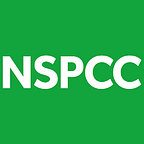Knowledge: The best investment you’ll make
Hello, and welcome to the second instalment of the The Digital Dunk.
I’m Louise, Lead Digital Producer, discussing the importance of digital skills and the resources you can use to help you build your knowledge.
Forget cryptocurrency, Benjamin Franklin said “an investment in knowledge pays the best interest”, and I agree. But where do you start with digital skills?
I love hearing about people’s different routes into digital. Very few of the people in the team here at NSPCC did a degree in computing, and the same holds true for most others I meet across the sector (with the exception of software developers) and their varied experience is what makes it such a rich and innovative field.
“an investment in knowledge pays the best interest” Benjamin Franklin
My own journey into digital took me through sourdough baking as well as charity supporter care, agency account management and service design. The ‘softer skills’ I learnt in those roles, such as focusing on users, creative problem solving and project management help me every day, but there’s a certain amount of technical knowledge you need to succeed too.
So if you’re looking to brush up your skills, making the move into tech, or simply want to understand your digital colleagues when they talk blockchain, chatbots & CSS, here are some easy and cheap ways to increase your digital knowledge.
1. Attend a Meetup
These are small groups run by passionate people, usually on weeknights. You get high quality presentations as you would at a conference but in an informal setting for FREE (or a few quid). A great way to network too, if that’s your thing.
My favourites are:
- Tech for Good — There are meetups across the country. I got to one in London, which is £3 and includes free wine and snacks!
- London Tech Ladies — Free practical sessions for women to network and improve skills e.g. learning to assert yourself and building your personal brand.
- London Chatbots & Voice Assistants -This free monthly meetup is pretty niche, but illustrates that there really is something for everyone.
Browse meetup.com to find something for you.
2. Learn to code
There are loads of free resources to get you writing your own computer coding. Even if you never intend to use it in your work it’s fascinating to learn the basics and you can cover those in an hour.
- CodeAcademy — start with HTML & CSS, then explore Python or any other coding language after that.
- Face-to-face sessions — Organisations such as Node Girls run free one day courses in Javascript for women and non-binary people in London. Great company and delicious food too!
3. Take a course online
There’s lots of bitesize learning sessions from top universities and organisations worldwide. Many courses are free, with options to upgrade to earn badges for LinkedIn for around £40/module.
- Coursera — An online learning platform with courses from Yale, Stanford, Google, IBM and more. Try the the User Experience design run by the University of California.
- Future Learn — At this digital offshoot of the Open University you could take modules such as ‘the anthropology of social media’ run by UCL.
- Khan Academy — A range of professionally created content and resources for a range of subject, including courses in computer programming and coding.
- Google Digital Garage — Google’s official free online marketing training covers everything from SEO to analytics.
4. Sign up to a newsletter
There’s loooooads of good practice happening across the charity and tech sectors and it can be really difficult to keep track of what’s going on. Signing up to a newsletter means you get curated info direct to your inbox.
Here are some of my favourites:
- Charity Digital News — Run by the Tech Trust, they focus on the latest innovations in charity technology. (Sign up top right.)
- CAST — Quarterly curated round up of emerging technology and its benefits for society. (Sign up in website footer.)
- Exponential View — For all your AI & future tech news (includes the excellent ‘short morsels to appear clever at dinner parties’).
- Nominet Trust — A non-profit organisation who aim to transform people’s live with technology.
5. Peer learning
One of the best ways is the simplest: ask.
If you’re curious about someone’s job ask them more about what they do, or to shadow them for an afternoon. If you’re embarrassed about admitting you don’t know something remember that everyone has to start somewhere:
One of the best things about switching into digital has been the supportive community. So many people are willing to help: just ask. Or for more formal mentorship seek out groups like 10 Digital Ladies who sometimes run events linking people up.
If you’re curious about the role of Digital Producers or how we do digital at the NSPCC, just get in touch and I’ll happily talk your ear off.
How did you learn your digital skills? Let me know in the comments.
About The Author
Louise is Lead Digital Producer at NSPCC and creates high-tech products for adults and young people. At home she makes low tech bread.
